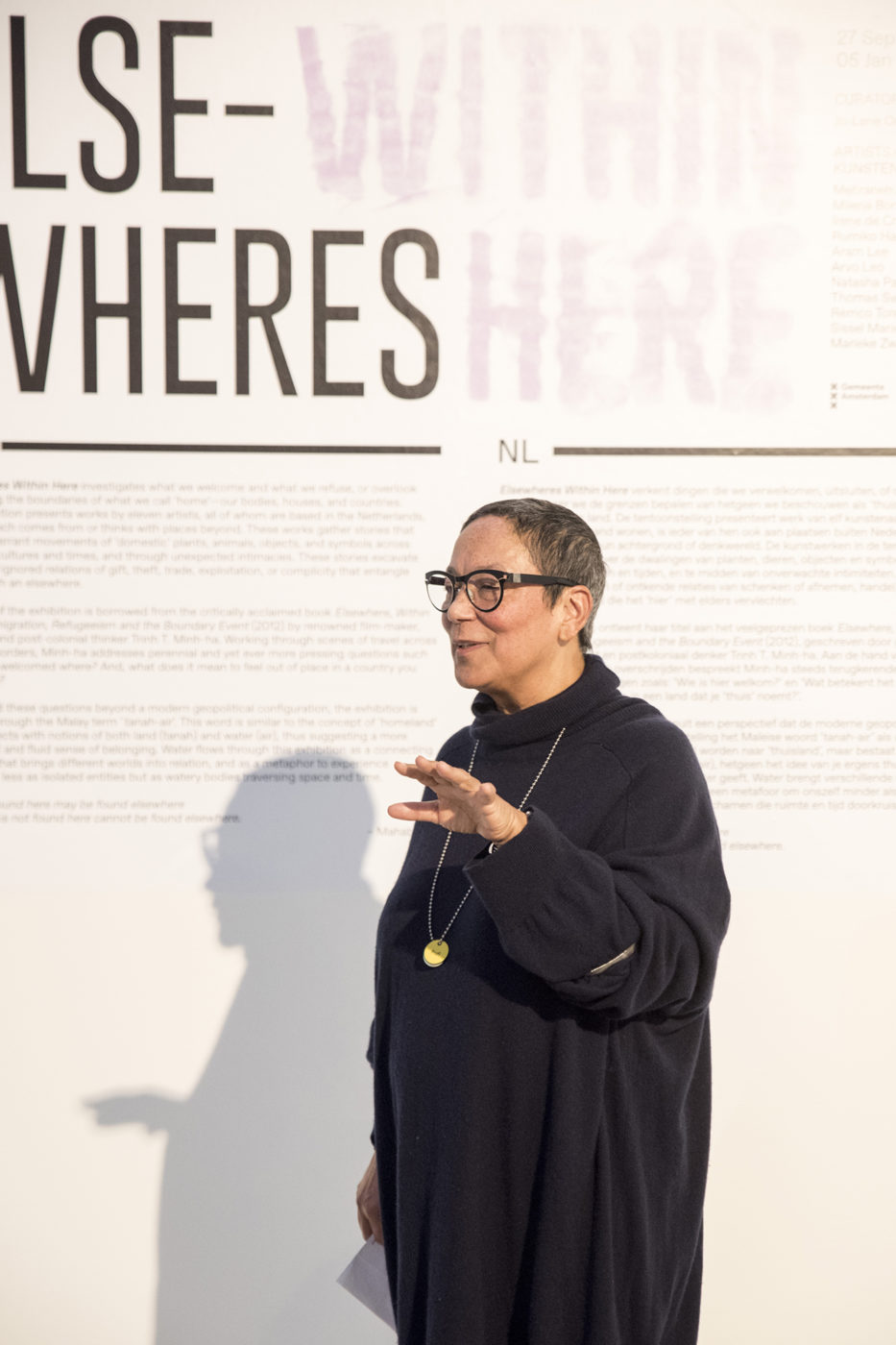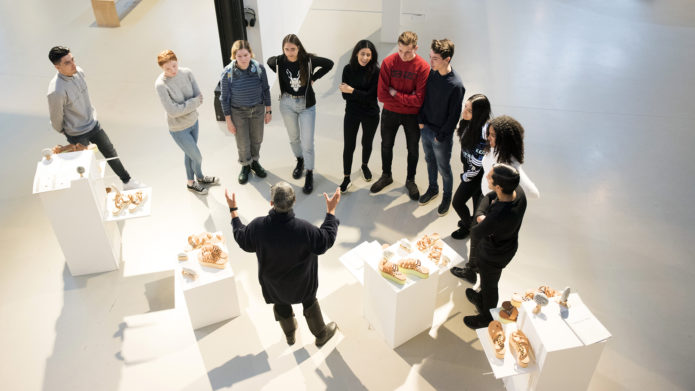 Linnemore Nefdt giving a our during Elsewheres within Here (2019). Photo: © Betul Ellialtioglu / Framer Framed (2019)
Linnemore Nefdt giving a our during Elsewheres within Here (2019). Photo: © Betul Ellialtioglu / Framer Framed (2019) Linnemore Nefdt
- Linnemore Nefdt was born as a Camissa African in Cape Town during the South African Apartheid days, got a permit to study at the Michaelis School of Fine Art and finally settled in Amsterdam in 1974 where she got her degree in Fashion Design at the Rietveld Academy. She freelanced as a ready-to-wear designer and ran her own high-end brand, later changing to education at the Amsterdam Fashion Institute (AMFI) as a fashion research and design coach, later specialising in regenerative design systems. As a lecturer, she became known for her critical focus on the many social issues in fashion. These passions carried on into her retirement, working with fashion activists, start-ups and development programmes on new approaches to fashion. The same applies to involvement with front-running organisations in her old love, fine arts, that are turning the gaze to new centres of interest.
-
-
Our neighbourhood coordinator Redouane Amine interviewed Linnemore Nefdt who is also a host and tour guide at Framer Framed for our online program in May 2020.
-

Photo: © Betul Ellialtioglu, Framer Framed (2019).
What do you like about being a host and a tour guide at Framer Framed?
I’ve been a host at Framer Framed since 2016 and am now also a tour guide. I enjoy being surrounded by a changing spectrum of socially and visually engaging art, the surprise, every time, of a new exhibition with another point of view and often from another part of the world. Also, each exhibition attracts different people and many visitors are from abroad and seek out Framer intentionally, so one is not confronted with the same crowd all the time. I feel very much at home with the international ambiance -and the warmth of the Framer people.
- Would you share with us a memory, which took place at Framer Framed, that makes you smile or laugh even now?
The discussions with the visitors are fascinating. A visitor I’d had a long talk with returned later and insisted I accept a bunch of tulips to make up for what she felt was an insensitive remark on her part. That was totally unnecessary but very sweet – and very sensitive of her.
- How is the discourse of Framer Framed connected to your own field of interest/study or (art)practice?
The discourse at Framer Framed ticks many boxes for me – growing up in Apartheid South Africa as a person of colour gave direction to my study and practice in art, fashion and education. Now that I am retired from education (Amsterdam Fashion Institute, AUAS), I enjoy being part of the discourse as a supporter of organisations like Framer Framed; Rambler Studios Amsterdam, a creative organisation for challenged youth; Easy Essentials, a circular/sustainable/ethical collaborative t-shirt brand and co-developing the Camissa Museum as a designer, unearthing the challenging story of the Indian Ocean slave routes and the peopling of Cape Town.
- What kind of content would you like to see online by Framer Framed during this pandemic?
How visual artists in different parts of the world are reacting to the social challenges imposed by the pandemic. Also reflections on how the media in the Netherlands are framing the situation, whose stories are being told and whose not.
